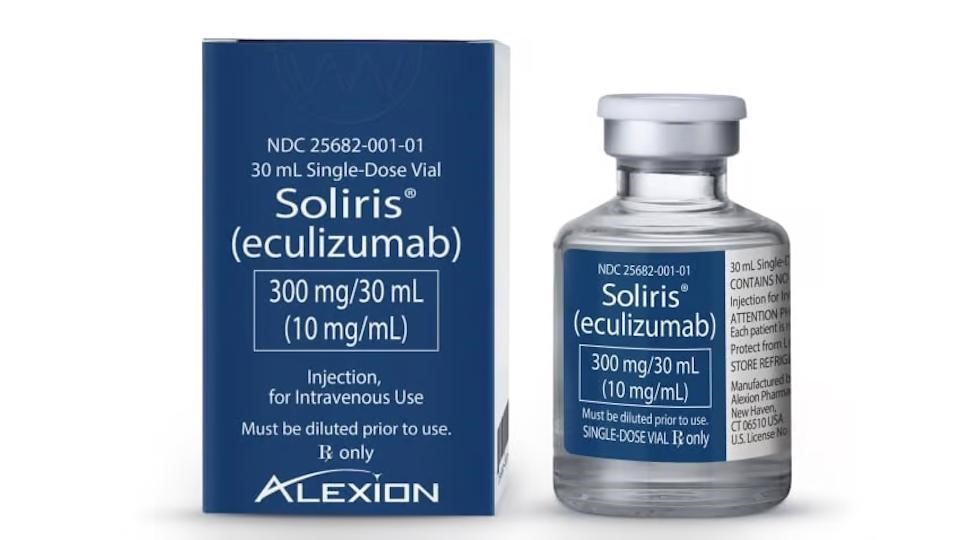The US Food and Drug Administration (FDA) has approved Amgen’s Bkemv as the first interchangeable biosimilar to Soliris for treating rare diseases, such as paroxysmal nocturnal hemoglobinuria (PNH) and atypical hemolytic uremic syndrome (aHUS).
The FDA has approved Bkemv, a biosimilar, as the first interchangeable treatment for two rare and debilitating diseases: paroxysmal nocturnal hemoglobinuria (PNH) and atypical hemolytic uremic syndrome (aHUS). By binding to the complement C5 protein, Bkemv prevents the breakdown of red blood cells, offering hope to patients suffering from these devastating conditions.
While carrying the same safety warnings as Soliris, its reference product, Bkemv’s approval marks a significant milestone in the biosimilar landscape, offering a more accessible and affordable treatment option for those in need, and paving the way for future innovations in this space.
Why care for rare?
Rare diseases are conditions that affect a small percentage of the population, typically fewer than 1 in 10,000 people. There are over 7,000 known rare diseases, caused by various factors including genetics, environment, and infections.
Studying and curing rare diseases is challenging due to limited patient populations, lack of funding, complexity, and limited awareness. Despite this, researchers, clinicians, and patients are working together to advance understanding and develop effective treatments.
What are PNH and aHUS?
Paroxysmal Nocturnal Hemoglobinuria (PNH) and Atypical Hemolytic Uremic Syndrome (aHUS) are rare blood disorders that turns the body’s own immune system against its red blood cells, leading to anemia and severe symptoms, such as thrombosis and pancytopenia. PNH is caused by a genetic mutation in the PIGA gene, which codes for a protein essential to produce glycosylphosphatidylinositol (GPI) anchors, making red blood cells vulnerable to the immune system’s complement pathway. Whereas aHUS unleashes blood clots that ravage small blood vessels, damaging organs and targeting red blood cells, platelets, and kidneys.
PNH and aHUS both affect about 1 in 100,000 to 1 in 500,000 people worldwide. Most PNH patients are diagnosed in their 30s and 40s, with a slight female preponderance, whereas Children and young adults are most vulnerable to aHUS.
The treatment for both these diseases includes eculizumab (Brand name: Soliris; Alexion Pharmaceuticals) and ravulizumab (Brand name: Ultomiris; Alexion Pharmaceuticals), two FDA-approved monoclonal antibodies that can increase blood platelet and red blood cell counts and reverse kidney damage.
What are biosimilars?
Biosimilars are highly similar versions of existing biologic drugs, offering comparable efficacy and safety at a lower cost, thereby expanding treatment options for patients. By introducing biosimilars, patients and healthcare systems gain access to more affordable and effective treatments for various diseases, including autoimmune disorders, cancer, and rare diseases.
What is Bkemv?
Bkemv (eculizumab-aeeb), the 53rd approved biosimilar in the U.S., is a biosimilar to an already existing drug Soliris. As a monoclonal antibody, it binds to C5 to the complement C5 protein and inhibits activation of the complement system preventing the breakdown of red blood cells in the bloodstream (intravascular hemolysis) in patients with PNH and aHUS.

Clinical Studies, Efficacy and and Side Effects
Bkemv was tested in a PNH randomized trial and aHUS single-arm prospective trial. A randomized, double-blind, placebo-controlled 26-week study evaluated the efficacy and safety of eculizumab-aeeb (Bkemv) in adult subjects suffering from PNH. Five single-arm studies (four prospective, and one retrospective) were conducted with 78 adult and adolescent patients suffering from aHUS.
This study primarily measured the LDH level Hemoglobin, Haptoglobin, Bilirubin as markers for hemolysis. The studies demonstrated highly similar results compared to the reference biologic, eculizumab (Soliris).
The trial reported common adverse reactions such as headache, nasopharyngitis, back pain, nausea, diarrhea, hypertension, upper respiratory infection, abdominal pain, vomiting, urinary tract infections, and fever. Notably, Bkemv, as a complement inhibitor, carries a boxed warning regarding the increased risk of serious and life-threatening meningococcal infections caused by Neisseria meningitidis. Its availability is restricted through the Bkemv Risk Evaluation and Mitigation Strategy (REMS).
Bkemv received approval in Great Britain in October 2022 for the treatment of paroxysmal nocturnal hemoglobinuria (PNH) in adults and children, followed by approval in the European Union in April 2023 and now FDA’s approval in May 2024 for the same indication, expanding access to this life-saving medication for patients across the region. The DAHLIA trial demonstrated its safety and efficacy, with a similar response to Soliris, reducing hemolysis in PNH patients and complement-mediated thrombotic microangiopathy in aHUS patients. While it carries a boxed warning for meningococcal infections, its approval offers a more affordable treatment option for patients with these rare diseases.
Dr. Avraneel Paul, Ph.D.
Sources
https://medness.org/section/medness-plus/care-for-rare
https://clinicaltrials.gov/study/NCT03818607
https://www.accessdata.fda.gov/drugsatfda_docs/label/2024/761333s000lbl.pdf
Disclaimer
The editors take care to share authentic information. In case of any discrepancies please write to newsletter@medness.org.
The sponsors do not have any influence on the nature or kind of the news/analysis reported in MedNess. The views and opinions expressed in this article are those of the authors and do not necessarily reflect the official policy or position of MedNess. Examples of analysis performed within this article are only examples. They should not be utilized in real-world analytic products as they are based only on very limited and dated open-source information. Assumptions made within the analysis are not reflective of the position of anyone volunteering or working for MedNess. This blog is strictly for news and information. It does not provide medical advice, diagnosis or treatment nor investment suggestions. This content is not intended to be a substitute for professional medical advice, diagnosis, or treatment. Always seek the advice of your physician or another qualified health provider with any questions you may have regarding a medical condition. Never disregard professional medical advice or delay in seeking it because of something you have read on this website.
MedNess is a part of STEMPeers® which is a 501(c)(3) organization registered in PA as PhD Career Support Group. The organization helps create a growing network of STEM scientists that is involved in peer-to-peer mentoring and support.



